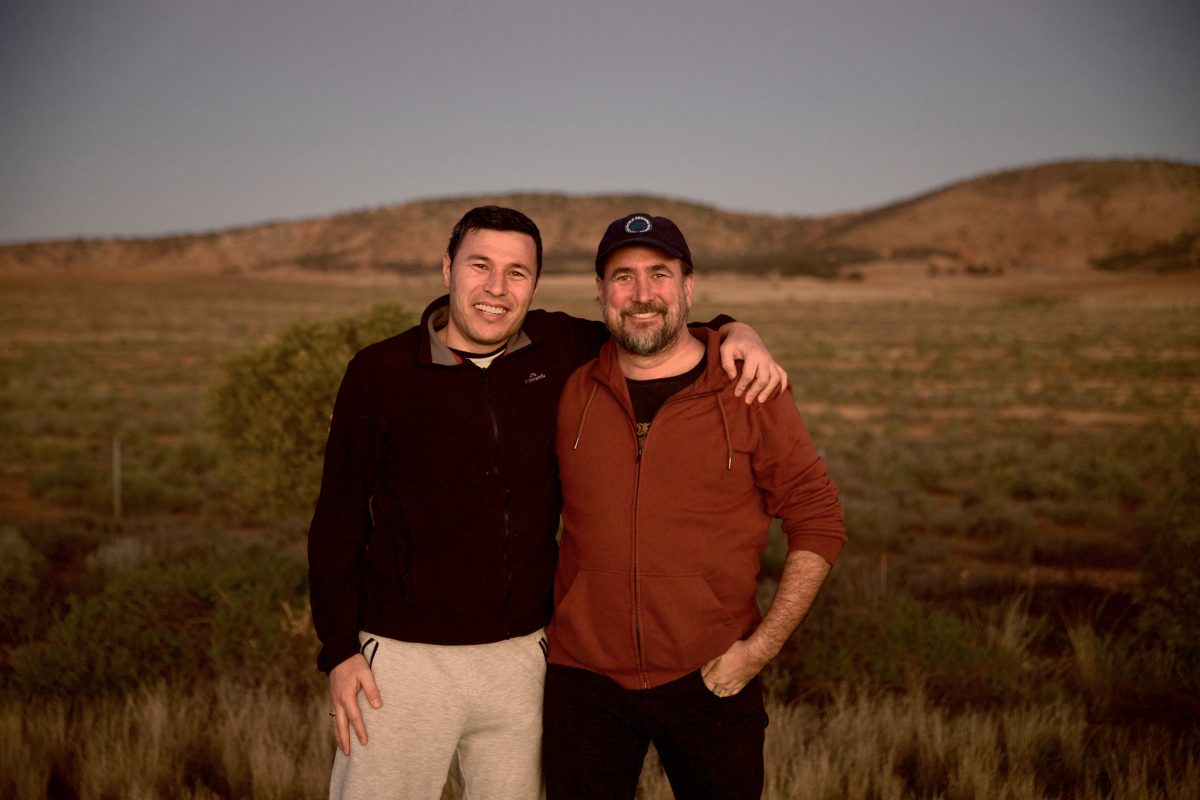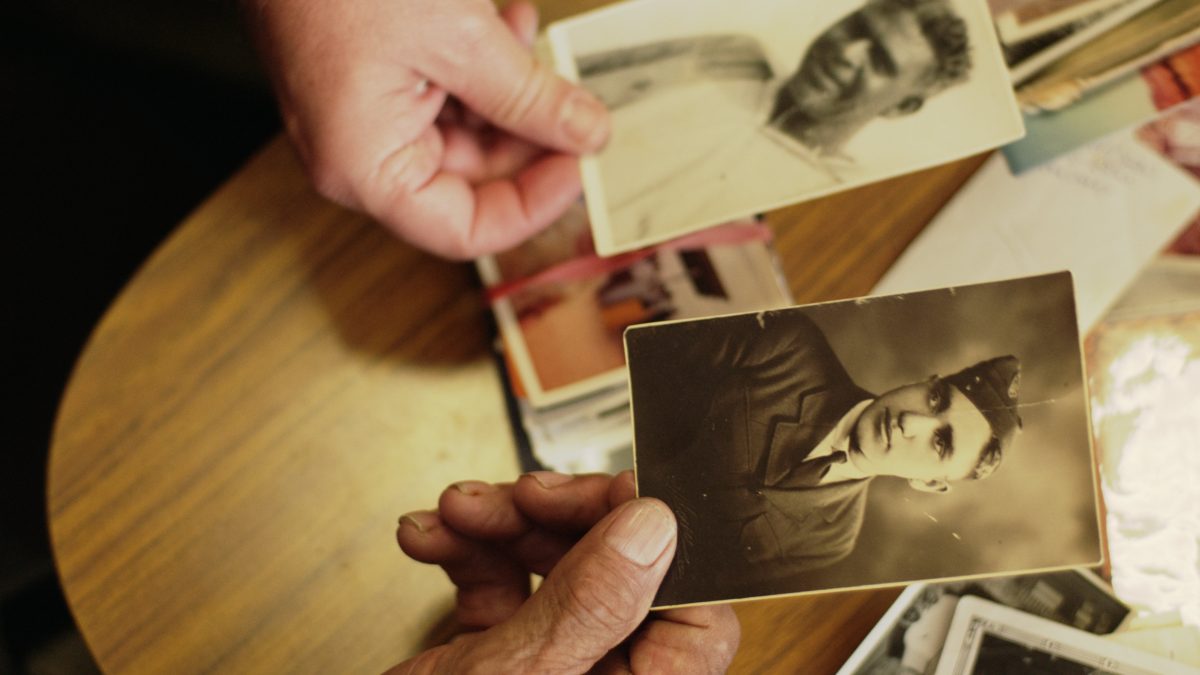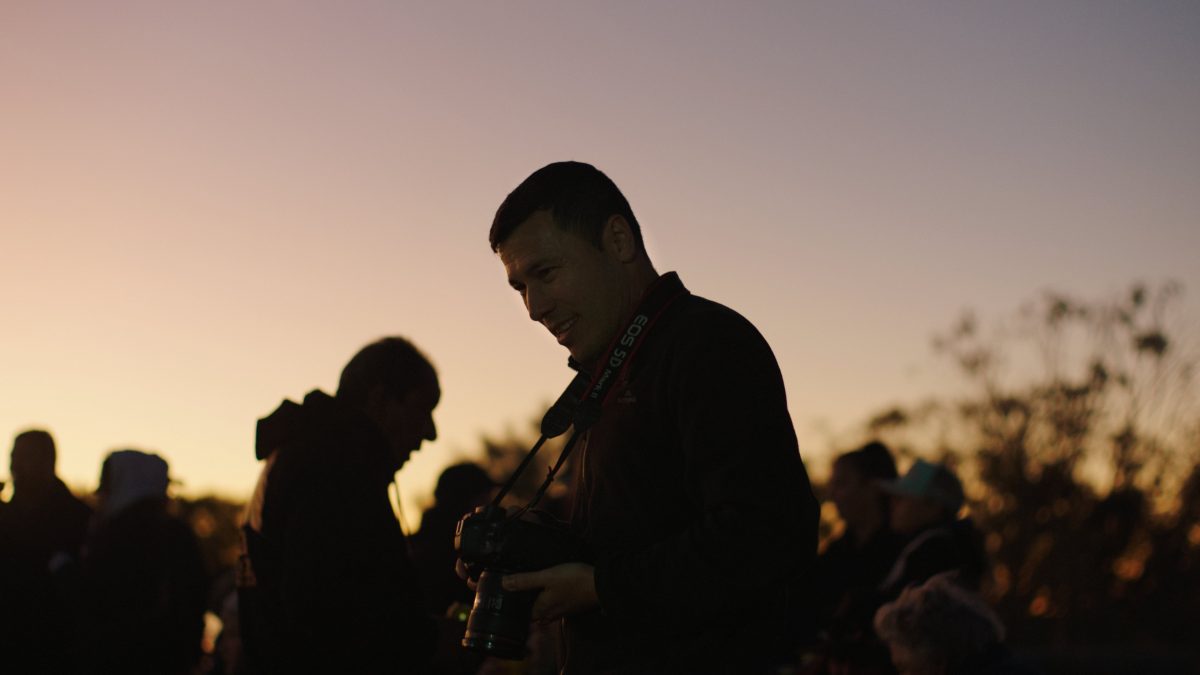
Former Afghan refugee Muzafar Ali and director Jolyon Hoff have been touring the country to show the long-standing connection between Afghan cameleers, Indigenous communities and European migrants. Photo: Katrina Penning.
When cameleers from Afghanistan arrived in Australia 160 years ago, few would ever have expected the impact they would have on the landscape of this country.
After former Afghan refugee Muzafar Ali discovered the connection between his home and the one he had made here, the passionate photographer teamed up with Watander, My Countryman director Jolyon Hoff to share his people’s shared history with Indigenous and European people.
On Thursday (22 June) at the Bay Pavilion, the Eurobodalla Refugee Action Collective (RAC) is screening Watandar, My Countryman for Refugee Week (18-24 June).
“The response has been fantastic from the audience, we’ve had full theatres everywhere we go,” Muzafar says.
“There’s also been descendants of cameleers join the Q&As we hold after each screening, which has made every one of these events very emotional and engaging.”

Photos of the cameleer descendants shown in the film. Photo: Katrina Penning.
As their second documentary together on refugees, the first being The Staging Post, Muzafar and Jolyon have been surprised to see the turnout of Afghans at this round of screenings. Especially those of the Hazara people, with which Muzafar shares his ethnicity.
“It’s beautiful to look out over the audience and see people of all backgrounds,” Muzafar says.
“I remember at one of the screenings in Sydney where one girl came up asking how she can help our film. She had gone through the exact same experience as I, in being forced out of Afghanistan when it collapsed under the Taliban regime.”
Alongside most Australians, the two say that many Afghans are unaware of this story and the film has left them with a sense of pride for how much their people have contributed to the country it has become.
Throughout the film’s production and the experience of showing it to audiences across the country, Muzafar has recognised a common sense of community between Afghan, Indigenous and European cultures.
“In Australia, Afghanistan and all around the world, there is not enough of this in our life today,” he says.
“We are so career-minded in our education systems, but don’t talk about the power of connection, friendship and respect which comes from our core human values.”
He recalls visiting the town of Marree, in outback South Australia, which was largely grown by the Afghan cameleers who arrived there in the 1880s.
Although the last time Marree saw any of them was in 1920, the impact they left behind was seen by Muzafar and Jolyon in the film when they joined a curry cook-up party.

Muzafar at the curry cook-up in Marree, enjoying a tradition practised by the Afghan cameleers since they arrived in the town more than 100 years ago. Photo: Katrina Penning.
There they shared a meal around the campfire with descendants of these cameleers, along with the Indigenous people and Europeans who mixed with them.
“I thought it was a beautiful example of what this country is and where it should continue to go,” Muzafar says.
The two are excited to come to Batemans Bay with the film for the first time. Following the Welcome to Country by Banja Smith and the film screening, there will be a Q&A with both men before a silent auction of two Aboriginal paintings.
All funds will go towards the RAC’s Refugee Week effort for organisations such as the Cisarua Learning Centre, an Indonesian-based group that provides education for refugees.
For more information on the event, visit Eurobodalla RAC’s Facebook page.







